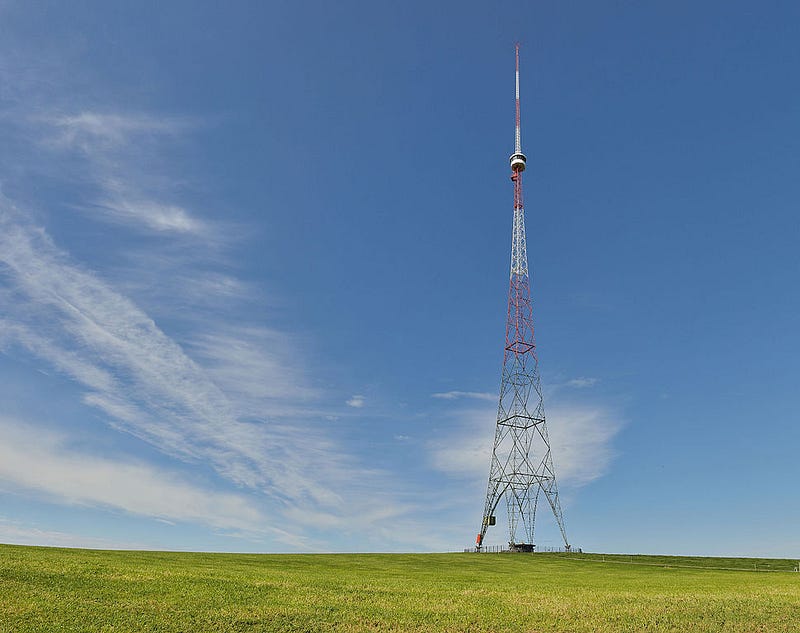# Technology: A Double-Edged Sword in Modern Life
Written on
Chapter 1: A Rainy Day Reflected in Time
Picture a dreary Sunday in November. The chill sets in, and shadows begin to dominate the room, even before noon. Does this evoke any nostalgia?
I recall rainy days spent at my childhood home in Leeds during the early 80s, where boredom often settled in. My father felt the same way. Typically, Sundays were reserved for walks in the Yorkshire Hills, but on those gloomy days, even his enthusiasm for hiking waned.
So, what did we do? We engaged in board games or card games, listened to vinyl records, read books, or watched television. Even if the offerings mainly consisted of old, grainy films depicting life in Victorian workhouses — or at least that’s how they appeared to me then. Occasionally, we visited my grandparents or went to the cinema, but those outings were infrequent. In essence, we made the most of what we had. Dinner was followed by my father enjoying a whisky, and then it was off to bed.
Fast forward four decades, and I find myself on holiday in France, confronted with a similarly dreary day. Despite it being August, a cold front swept down from the north, reminiscent of those November afternoons.
So, how did we spend our time?
Much like in 1980 (kind of). We played games, caught up on TV shows, enjoyed music, read books, browsed the news, engaged in Fantasy football, binge-watched Netflix series, chatted with someone thousands of miles away, placed bets on sports events, wrote an article on Medium, did some online shopping, checked the news again, and even looked up the weather in Beirut for no apparent reason.
Doesn’t that sound familiar?
Not quite. There wasn't a physical book or newspaper in sight, nor any real board games or playing cards. Aside from the occasional trip to the fridge for another drink, we remained nestled in our armchairs or sofas the entire day.
We didn’t need to move. We found ample entertainment within a 4 x 6 piece of plastic, spending hours glued to these remarkable devices and draining our data plans. It became a continuous cycle of scrolling, watching, and messaging.
This isn’t unusual, is it? It’s become our go-to pastime. We constantly seek new ways to occupy our time on our phones, whether it’s checking weather forecasts for places we’ll likely never visit.
Technology is beneficial, impressive, and practical. Yet, it stands as the largest time sink in history. Recently, my boss encouraged me to use a job management app for my role as a groundsman.
When I inquired why, he mentioned he utilized it both at work (he’s an accountant) and at home (he has four kids).
“It’s fantastic,” he insisted. “A real time-saver!”
But how so? Does it remind you when to take a break? Tell you when to eat or sleep? Why would I need that? I’ve been in this job for five years and could do it in my sleep if necessary.
I can see when grass needs cutting, trees need pruning, and flower beds require weeding. For scheduling planting times and organizing the vegetable plot, I rely on a notebook I’ve used for years, filled with notes on previous seasons: disease issues, soil moisture levels, and plants that didn’t thrive.
Transferring all this valuable data to an app would not only be a massive time commitment but also utterly pointless. The time I’d invest could instead be counted as overtime at the end of the month. This approach would end up costing my boss money without providing any real benefits.
The internet has certainly brought forth numerous advantages. However, it has also consumed an astonishing amount of our time.
Consider social media. Have you ever pondered what you’re doing when you spend hours scrolling through others' lives? It’s an exhausting endeavor. It feels more draining than reading a book.
Yet, we continue this behavior because technology demands our attention. All those apps we’ve downloaded — and even paid for — require our engagement. We owe it to them to dedicate our time! And even if we don’t, there’s always some maintenance needed to prevent our phones from becoming cluttered with unnecessary data. Or those incessant notifications reminding us to update!
I find myself spending too much time ensuring my phone remains functional. How often do I clear data, scan for viruses, uninstall old apps, or reboot the device? It has almost become a game to see how close I can get to achieving 100% Optimal Status, even though I know it’s unattainable.
From the moment I power on a brand-new phone, it’s destined to be less than perfect, and I know I’ll be playing catch-up. This situation mirrors the tech revolution: you’re always trying to keep pace.
New apps, updated systems, fresh phones, continuous updates, new colors, wallpapers, and ringtones — it’s a never-ending cycle. It keeps us engaged, keeps us playing, and keeps us spending.
All the while, we could simply be reading a book or staring blankly into space. Even on a rainy day.
Chapter 2: The Cost of Our Digital Engagement
Section 2.1: Reflection on Technology's Role
In this section, we delve deeper into how technology has transformed our lives, often for the worse.
Subsection 2.1.1: The Paradox of Connectivity

Section 2.2: Finding Balance in a Digital World
Here we explore strategies for maintaining a healthy relationship with technology, ensuring it serves us rather than the other way around.